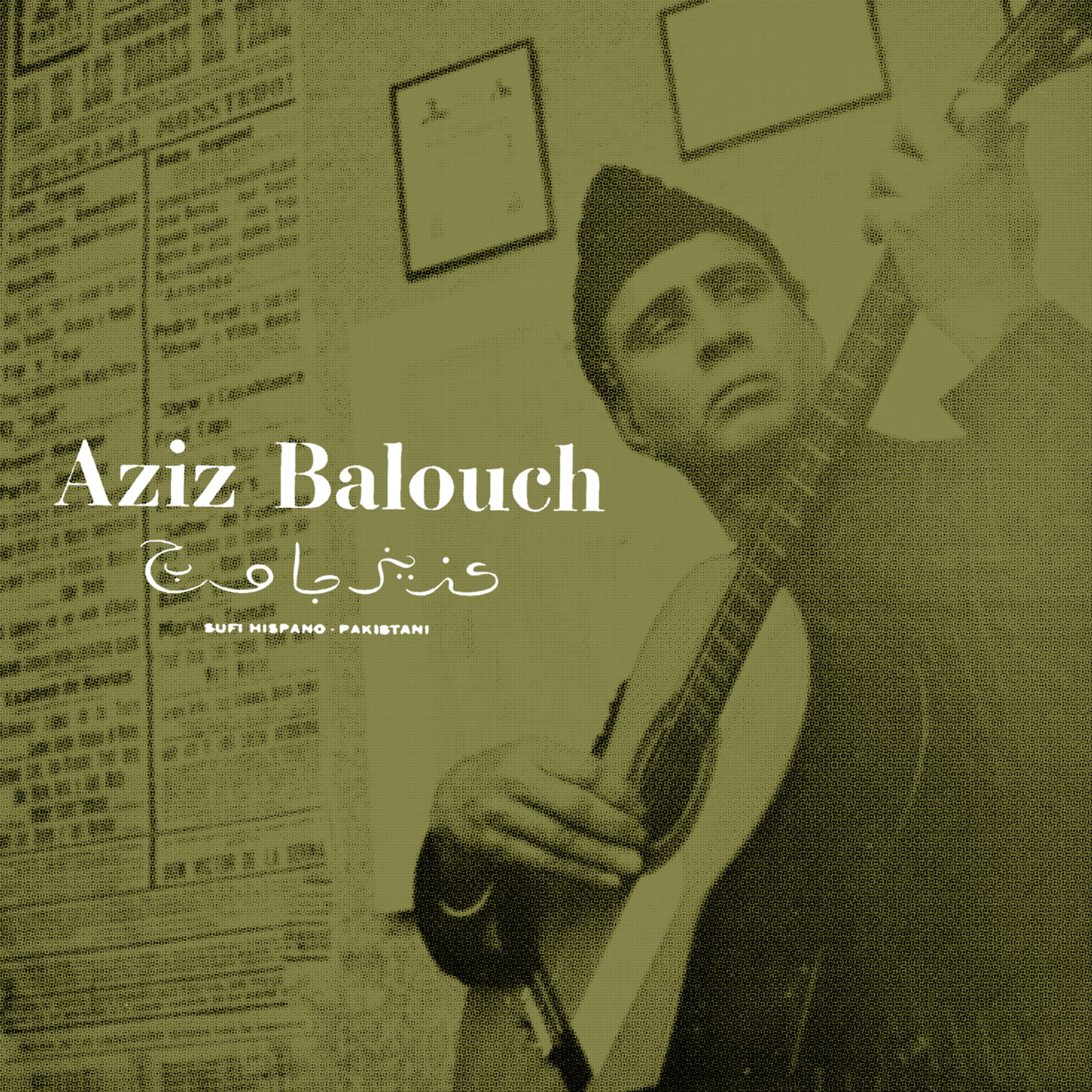- 7inch
- Digital
Aziz Balouch
Sufi Hispano-Pakistani
Death Is Not The End
- Cat No: DEATH036
- Release: 2020-07-10
- updated:
あまりに素晴らし。。 1932年にパキスタンからイベリア半島に移住し、イスラム神秘主義とフラメンコを掛け合わせた、世界でも稀なワールドミュージック的なアイデアをこの時期にやっていたボヘミアン、AZIZ BALOUCHによる唯一の録音(1962年)丑満時、または黄昏のトリップ。DEATH IS NOT THE ENDより。
Track List
-
1. Aziz Balouch - Fandangos
02:42 -
2. Aziz Balouch - Serrana
02:51 -
3. Aziz Balouch - Granadina Arabe Del Siglo IX
03:17 -
4. Aziz Balouch - Seguiriya
03:00
16bit/44.1khz [wav/flac/aiff/alac/mp3]
Death Is Not The End digs deep to pull out some raw Sufi-Flamenco recordings from 1962, courtesy of the late Aziz Balouch.
Aziz Balouch moved to the Iberian Peninsula from modern-day Pakistan in 1932 in search of work and music. After a childhood spent studying Islamic mysticism and devotional songs in the Sufi shrines of his native Sindh he soon fell in love with the 'deep song' of flamenco and was taken in as an apprentice to the great heterodox cantaor Pepe Marchena after a chance encounter. He dedicated the rest of his life to flamenco and developed an elaborate theory of the South Asian and Sufi origins of the art which he propagated through live performances and publications in London, Spain and Pakistan.
Decades before the arrival of the academic discipline of ethnomusicology or the invention of 'fusion' Aziz Balouch painstakingly immersed himself into a completely different musical tradition seeking connections and drawing inspiration to create a unique performance style which has tragically remained hidden and ignored. These 4 tracks are taken from Aziz Balouch's only surviving recording, an EP released in Spain in 1962. On each track Balouch draws on his polyglottism to seamlessly merge Sufi poetry in Persian, Sindhi, Hindi and Arabic with various forms of Andalusian song in Spanish. Accompanied by a single guitar his voice pushes through into the profound depths of human experience to excavate the shared past of flamenco which had been submerged beneath the surface.
Aziz Balouch moved to the Iberian Peninsula from modern-day Pakistan in 1932 in search of work and music. After a childhood spent studying Islamic mysticism and devotional songs in the Sufi shrines of his native Sindh he soon fell in love with the 'deep song' of flamenco and was taken in as an apprentice to the great heterodox cantaor Pepe Marchena after a chance encounter. He dedicated the rest of his life to flamenco and developed an elaborate theory of the South Asian and Sufi origins of the art which he propagated through live performances and publications in London, Spain and Pakistan.
Decades before the arrival of the academic discipline of ethnomusicology or the invention of 'fusion' Aziz Balouch painstakingly immersed himself into a completely different musical tradition seeking connections and drawing inspiration to create a unique performance style which has tragically remained hidden and ignored. These 4 tracks are taken from Aziz Balouch's only surviving recording, an EP released in Spain in 1962. On each track Balouch draws on his polyglottism to seamlessly merge Sufi poetry in Persian, Sindhi, Hindi and Arabic with various forms of Andalusian song in Spanish. Accompanied by a single guitar his voice pushes through into the profound depths of human experience to excavate the shared past of flamenco which had been submerged beneath the surface.




パキスタンでイスラム神秘主義を学んだあと、1932年にスペインはアンダルシアへ移住。そこでフラメンコのカンタ(歌)のうつくしさに触れて、マエストロ、ぺぺ・マルチェナ=ニーニョ・デ・マルチェナ(1903〜1976)の弟子入り。ペルシャ語、シンディー語、ヒンディー語、アラビア語のスーフィーの詩とスペイン語のアンダルシアの歌をシームレスに融合させているという奇天烈かつワールドミュージック的アイデアをこの時代に実践してた驚き。これが唯一の現存する録音だそうです。
にしてもパコデルシア以前のフラメンコのカンタには、この独特の間(魔)があるとても不思議なボーカルミュージックかつ、ヒターノ(ジプシー)によるストリートの音楽です。そこに掛け合うギターのなんとも洒脱なこと。フラメンコギターはカリブ/アメリカ音楽経由ではなく、アラブ経由なので文脈も全然違います、そこも聴いてみてください。この間(魔)とスーフィズムに共通の事項を見出したんでしょうか。雅楽やアフリカ音楽の初期フィールド音源なんかとも聴き比べても面白い。カッコ良すぎる。。こういうトリップもあります。刑務所での録音や変わったアーリー・ミュージックを紹介するDEATH IS NOT THE ENDのマニアックなお仕事。 (Shhhhh) (7inchのコメントから参照)